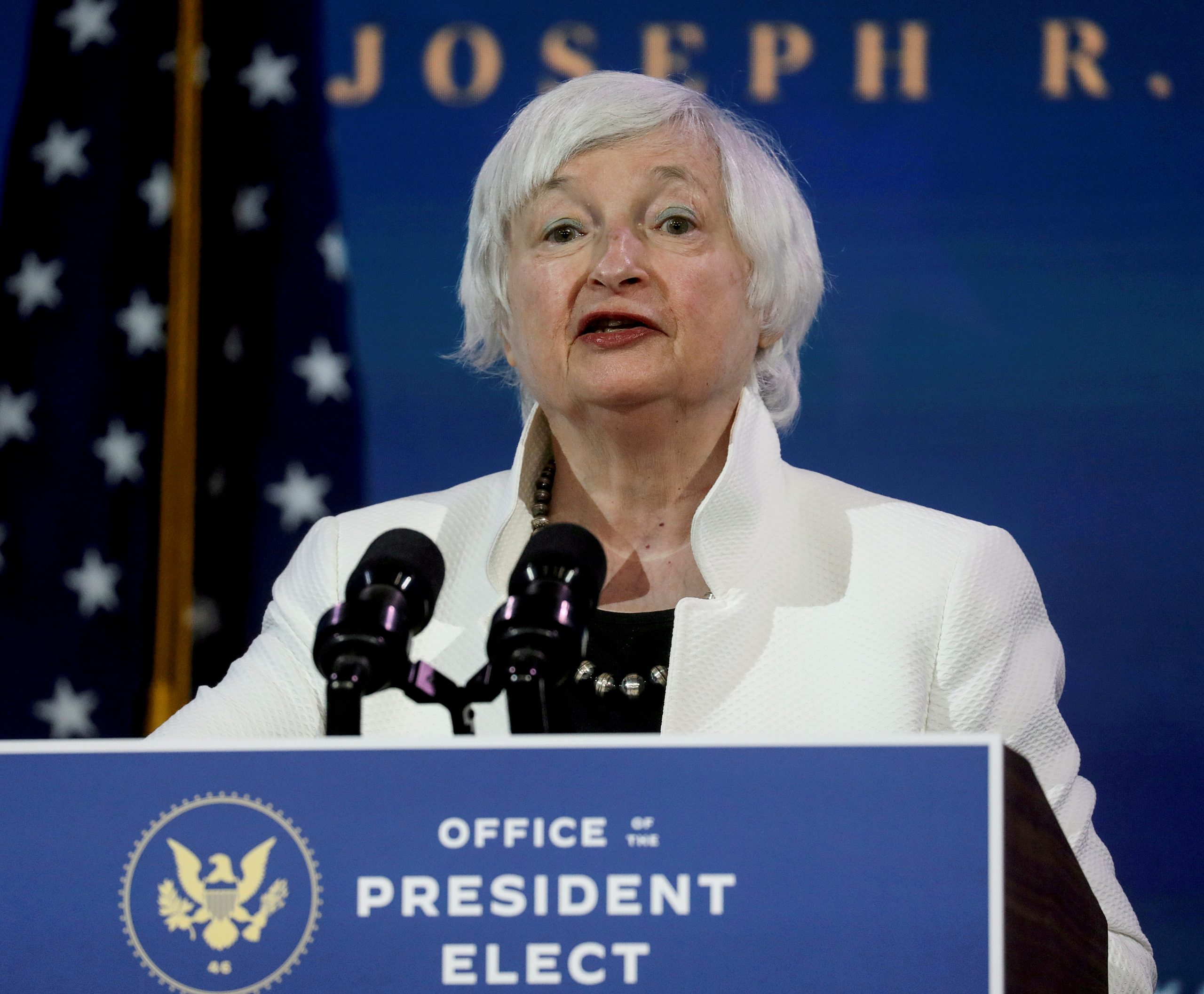U.S. Treasury Secretary Janet Yellen said on Monday that she is working with G20 countries to agree on a global corporate minimum tax rate to end a “30-year race to the bottom on corporate tax rates.”
The global minimum tax is a key pillar of President Joe Biden’s $2 trillion infrastructure spending plan, which calls for an increase in the U.S. corporate tax rate to 28%..
Without a global minimum, the United States would again be at a disadvantage to a number of other major economies with lower tax rates, tax experts say, with U.S. commitment helping to jump start negotiations for a tax deal among a number of major economies.
Yellen, speaking to the Chicago Council on Global Affairs, said she also would use her participation in International Monetary Fund and World Bank annual meetings this week to advance discussions on climate change, improve vaccine access and encourage countries to support a strong global recovery.
The new Treasury chief said it was important to “end the pressures of tax competition” and make sure governments “have stable tax systems that raise sufficient revenues in essential public goods and respond to crises, and that all citizens fairly share the burden of financing government.”
Separately, a U.S. Treasury official told reporters that it was important to have the world’s major economies on board with a global minimum tax to make it effective.
The official said the United States would use its own tax legislation to prevent companies from shifting profits or residency to tax haven countries and would encourage other major economies to do the same.
The Biden plan proposes a 21% minimum corporate tax rate, coupled with eliminating exemptions on income from countries that do not enact a minimum tax. The administration says the plan will discourage the shifting of jobs and profits overseas.
Yellen said in her remarks that while advanced economies had successfully supported their economies through the COVID-19 pandemic, it was too early to declare victory, and more support for low income countries to gain access to vaccines was needed.
“I am urging our partners to continue a strong fiscal effort and avoid withdrawing support too early, to promote a strong recovery and help avoid the emergence of global imbalances.
(Reporting by David Lawder in Washington and Bhargav Acharya in Bengaluru; Editing by Emelia Sithole-Matarise, Andrea Ricci and Chizu Nomiyama)

























 Continue with Google
Continue with Google